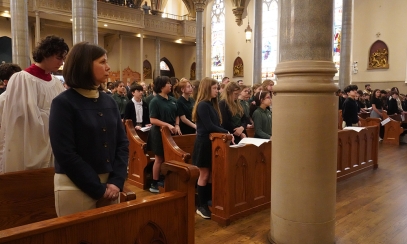
Tribunal in search of advocates
The Marriage Tribunal is looking for volunteers willing to be trained as canonical advocates. To help people move through the annulment process, the Tribunal is offering two workshops for the training of new advocates and for use as a refresher course for experienced advocates. An advocate is the personal legal representative of a party to a case brought before the tribunal. You do not have to be a civil lawyer or have any experience in law to be a canonical advocate.
Though pastors, priests, and deacons often fill this role, trained laypeople can also be included in carrying out this ministry. Therefore, all priests, deacons, and laity endorsed by their pastors/administrators are welcome to attend. In 2022, the tribunal held two trainings, one in Birmingham and one in Madison. This year, the tribunal will also hold two training sessions.
The spring training will be April 22 at Sacred Heart of Jesus Catholic Church in Anniston from 10 a.m.-3 p.m. Lunch will be provided.
The fall training will be on Sept. 23 at St. Joseph Catholic Church in Florence from 10 a.m.-3 p.m. Lunch will be provided.
The Code of Canon Law requires that lay persons who devote themselves to a special service in the Church must acquire the appropriate formation needed to fulfill the function properly (c. 231 §1). For advocates, this means training to make them competent to represent the interests of the parties and to assist the tribunal in the pursuit of the truth concerning the validity of a marriage.
Which lay parishioners make the best advocates? An advocate should be a person who is good with both paperwork and people. They need to have a good working relationship with their pastor. They should be able to devote sufficient time to help a Petitioner through the process of preparing and presenting their petition for a declaration of nullity. They must be willing and able to ask people direct, difficult questions with empathy and compassion. They need to be willing to answer their client’s questions about the process. An advocate needs to be attentive to detail, trustworthy, and discreet. Finally, an advocate needs to be a practicing Catholic who is living out the Catholic faith in keeping with Church teaching. And, if you are bilingual, that is an added bonus!
For those wishing to attend either of the scheduled training, please RSVP to Mattie Shumate at 205-838-8307 or mshumate@bhmdiocese.org.



